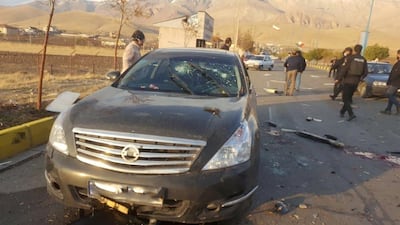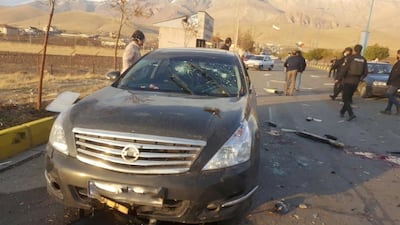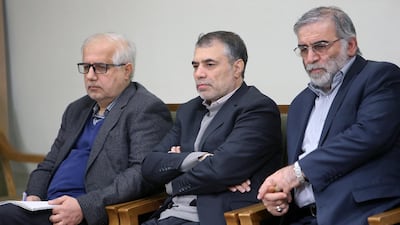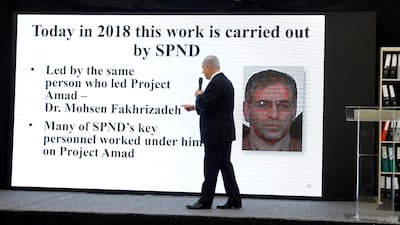It took only three minutes to kill Mohsen Fakhrizadeh, Iran's top nuclear scientist, as he drove in a bulletproof car with his wife to spend the weekend at their home on the outskirts of Tehran on Friday.
But in new details emerging from Iranian state media, authorities believe the assassins, rather than lying in wait at the roadside, could have been hundreds if not thousands of kilometres away as they orchestrated an audacious high-tech hit job at the heart of the Iranian security state.
Iran knew of the dangers their top scientist faced. Five former colleagues had been murdered since 2010, one survived an attempt and the death of another was treated as mysterious.
That, and several undisclosed previous attempts on his life, was the reason that Fakhrizadeh, 59, had protection. Round-the-clock bodyguards were there to stop any threat to one of the leading minds in what some western and Israeli officials claim is Tehran's secret pursuit of nuclear weapons.
Friday was no different. Three cars carrying close protection teams flanked the scientist in a motorcade as he sped to his weekend escape at about 2pm.
But as the lead car pulled away from the convoy to check the house for threats, Fars news reports, several gunshots rang out.
It appears Fakhrizadeh stopped the bulletproof vehicle, believing he had hit something in the road or the car had engine trouble.
As he stepped out to check the road, more bullets slammed into him.
One lodged in his back, another severed his spinal cord. He hit the road bleeding.
Moments later, a Nissan truck parked 150 metres away exploded.
The assassins had no need to make an escape. The entire operation, Iranian officials claim, was carried out from distance with a remote-controlled automatic machinegun.
“No human assets were present at the scene of the assassination and the shooting was carried out only with automatic weapons,” Fars reported on Sunday.
It appears the remote-controlled weapon was mounted inside the Nissan vehicle that was parked at the roadside.
Authorities have since identified the owner of the vehicle but say he is long gone, having flown out of the country on October 29.
Fakhrizadeh was rushed to a nearby clinic and then flown to a hospital in Tehran, where he died a short time later.
It is unclear who was behind the hit, but Iran pointed the finger at Israel.
The New York Times cited unnamed intelligence officials as saying that the Iranian official had long been on the hit list of Mossad, Israel's spy agency. The Iranians certainly regarded Fakhrizadeh as important: on Monday, he was given a full state funeral with a guard of honour, an event attended by senior government officials and members of the Islamic Revolutionary Guards Corp.
While Israel made no official comment after the killing, Fakhrizadeh was singled out by Israel before.
He was mentioned in a presentation by Israeli Prime Minister Benjamin Netanyahu in 2018 announcing that Israel carried out an operation to extract a vast archive of documents from a warehouse in Tehran that he claimed detailed an extensive nuclear weapons project lasting years.
Mr Netanyahu said the scientist was the director of Iran’s secret nuclear weapons project.
“Remember that name: Fakhrizadeh,” he said.















